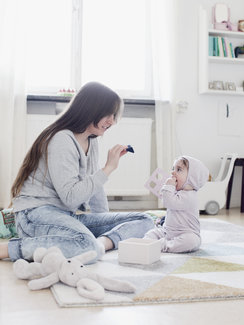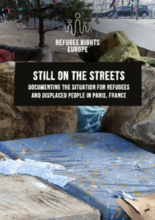

Displaying 211 - 220 of 423
Based on an analysis of the evolutions in the way the care structures for unaccompanied minors were set up in Belgium, the authors of this article critically reflect on the underlying rationales that justify the particularities of these structures, hereby also reflecting about the implications of these rationales for professionals and researchers.
In this study, the participation of children in the Dutch child protection system (CPS) under the new Youth Act 2015 is critically analyzed.
Save the date for the Opening Doors for Europe’s Children event “Maintain, Strengthen, Expand: How the EU can support the transition from institutional to family and community-based care in the next MFF”
UNICEF is seeking a Child Protection Consultant in Germany.
This study provides an overview of the situation faced by unaccompanied minors in Germany.
In this study, the participation of children in the Dutch child protection system (CPS) under the new Youth Act 2015 is critically analyzed.
This study answers the following question: “How does the case-specific context influence the practitioners' decision-making process regarding matching in family foster care?”
The current study reports the findings of a three-wave longitudinal study wherein the researchers examined the development of school engagement and analyzed which factors were predictive of school engagement in a sample of 363 Dutch foster children.
This paper examines the longer term outcomes of young people who experienced out of home care (OHC) as children, in Britain, Germany and Finland, countries characterised by different welfare regimes.


